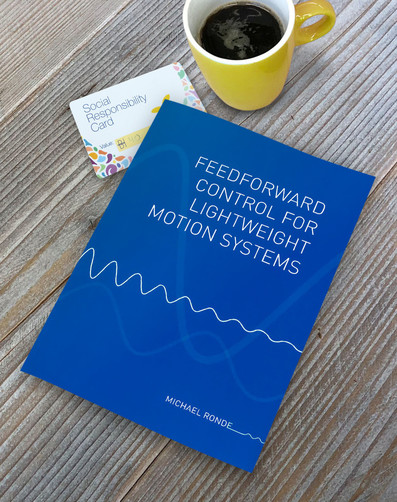
Feedforward control is a common method to compensate for tracking errors due to known and measurable disturbances. In motion systems these disturbances are mainly introduced by the setpoint trajectory. Typically these setpoint trajectories are point-to-point motions, which might be changing due to the production process. The tracking errors during motion and the residual vibrations determine both the achievable production speed and production quality, which can be enhanced by proper feedforward control design.
This thesis addresses feedforward control design for lightweight electromechanical motion systems. Lightweight systems pose several challenges for feedforward control design: i) flexible modes in the frequency region of interest: the setpoint trajectory excites the resonant dynamics of the flexible modes, and ii) the relation between the measured variables and the performance variables cannot be described by a static relation. The second item implies that the performance cannot be calculated or controlled using simple geometrical transformations. Such a control problem is known as inferential control.
